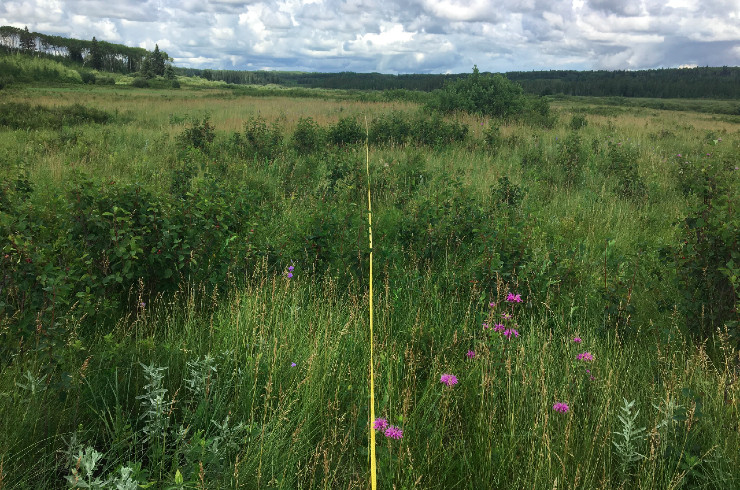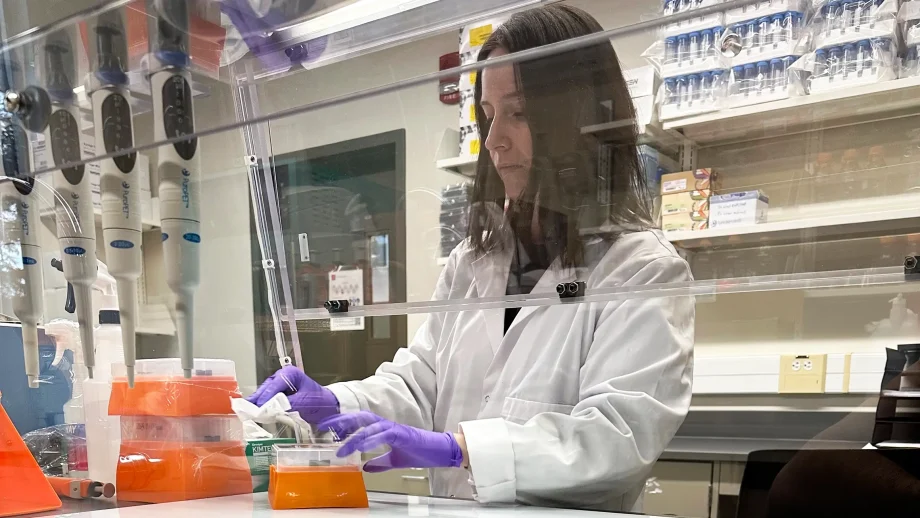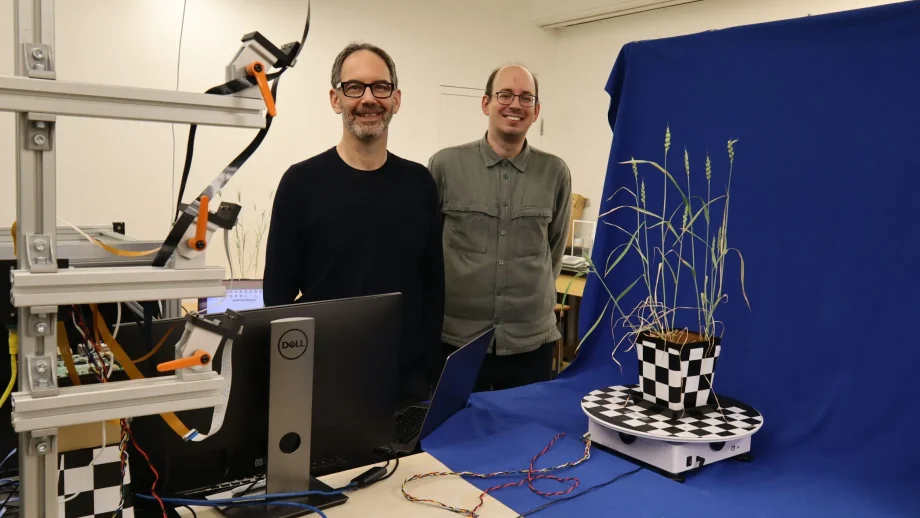Try to imagine how the hotter, drier summers that create drought conditions will effect our ecosystems in Manitoba. As our climate continues to change, it will effect plants we grow for food, and the plants that provide food and habitat for wildlife.
Graduate student Colleen Robertson (Bioscience, Technology and Public Policy), has been awarded a tri-council scholarship to look at the effects of grazing on prairie ecosystems.
Working with UWinnipeg biologist Dr. Rafael Otfinowski, Robertson will be the first to study the long-term effects of grazing on prairie ecosystems and their tolerance to drought.
“With the changing climate, we anticipate that the Canadian prairies will be exposed to more periods of frequent and prolonged drought,” said Robertson. “Prairie plants that tolerate grazing can also produce leaves, stems, and roots that make them more susceptible to drought.
As a result, prairies exposed to intense grazing could become less resilient to climate change and may be lost as droughts increase.”
Using data collected as early as 1974, Robertson will look at the long-term changes in plants in prairie grasslands. She also conducted challenging field work allowing her to experience the remote backcountry of Riding Mountain National Park and appreciate the intricacies of the floral world.
Throughout her field season, Robertson worked with a team of researchers, field staff, and resource managers from both UWinnipeg and Parks Canada.
“Collaboration within our team was the key to making this challenging field season a success,” said Robertson.
Now back from the field, Robertson is in the preliminary stages of her research and has noticed that invasive plants and shrubs have increased in grasslands that were intensely grazed.
“I’m excited to see how plants have been changing in these prairies over the past 50 years. This will contribute to our understanding of the ecological role of grazing in the northern Great Plains grasslands, and will help us define the management and restoration efforts in Canadian National Parks,” she said.
“It’s an honour to continue to collaborate with Parks Canada on this important research” said Otfinowski, Robertson’s supervisor. “This is a valuable long-term experiment that many people have contributed to over the years. Each time we travel to conferences, we find new potential collaborators. It’s exciting for our team to learn new tools and new ways to study prairie ecosystems.”






